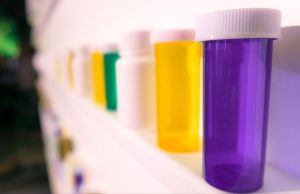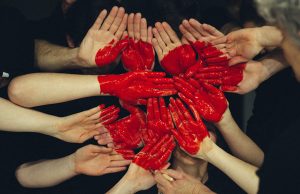
- Many don’t fully understand what it’s like to experience addiction, from developing the illness, to going through withdrawal, to working towards recovery.
- But it’s important we try our best to achieve a greater understanding, so we can best help those who suffer with the disease.
- A common misconception is that addicts are scary and dangerous people—in reality, anybody can become addicted to drugs.
- The disease is also more powerful than most realize: it isn’t just a craving, the substance controls your entire being.
- Furthermore, going through withdrawal and working toward sobriety are both painfully difficult stages of the recovery journey.
- However, recovery is possible; it might take some hard work, but there is hope for life after addiction.
Many people who don’t experience addiction themselves struggle to understand why and how others become addicted to drugs. Some doubt or downplay the suffering that comes with this disease (a classification these individuals object to); and others, those who empathize with struggling addicts, just can’t fully grasp the painful, strenuous battle that is addiction. In consideration of this lack of understanding, mental health professionals and recovering addicts explain exactly what it’s like to experience addiction, from the onset stages to recovery:
1) Addiction does not discriminate.
Brooks Oscarson has been sober for 2.5 years now and is dedicated to raising awareness about drug addiction. She explains that addiction, like many other diseases, does not discriminate—people from all walks of life experience addiction: “Just like there are many different types of people in the world, there are many different types of addicts as well. I think when most people think of drug addiction, they picture a scary homeless person who wouldn’t hesitate to hurt someone to get their next fix. And while those addicts most certainly do exist, that’s not the whole picture… the thing with addiction is that it can happen to anyone.”
2) It’s more than just a “craving.”
Dr. Sal Raichbach PsyD of Ambrosia Treatment Center goes on to explain that addiction is more than just a craving or a bad habit. “A lot of people use the word craving when referring to an addict’s lust for getting high, but using that word leads to a fundamental misunderstanding about the disease,” he says. “The reality is that the cravings of addiction isn’t the same kind of desire that someone would have for chocolate or potato chips. An addict doesn’t just crave the drug; their body is functioning as if it cannot live without it.”
3) The substance becomes master of mind and body.
“It’s your master,” RJ Oenbrink DO Philosophy from Appalachian Wellness says of the disease. “Without it, you have cravings, irritability, physical symptoms of withdrawal—incredible pain, diarrhea, vomiting, sweating, runny nose, yawning (opiates) or rebound anxiety, jitters, agitation (benzo’s, alcohol) or incapacitating fatigue (uppers). Nobody would choose this. If they went through withdrawal once, they’d never voluntarily do it again—the fact that they do helps prove this is a bona-fide illness that causes brain chemistry and structure changes. Yet, they do it again and again and again. Ruining their lives, their families, their relationships, jobs, prospects for a future.”
4) Withdrawal is unimaginably painful.
Withdrawal adds another painful layer to addiction, as explained by Caleb Backe, Health and Wellness expert for Maple Holistics: “Withdrawal is a pain unlike any other. Physical and mental anguish. You may find yourself with chills, with sweats, cursing, yelling, angry and upset, hating everyone and everything, including yourself, and trembling like you have a temperature of 105. Day, night, sometimes it is all a gray blur. Sometimes it hits you all of a sudden, even after many days of being clean. And all that time you know there is an end, however brief, to your pain. A solution.”
5) Maintaining sobriety is a challenge in and of itself.
And getting through those withdrawals and maintaining sobriety is yet another obstacle in this journey. “Maintaining sobriety is a formidable task. Cravings and triggers are inevitable especially in the early stages of recovery,” explains Rev. Sheri Heller, licensed clinical social worker. “Attending fellowship meetings, doing step work with a sponsor, and changing one’s lifestyle are necessary prerequisites to recovery. Utilizing resources when the threat of a slip or relapse occurs is critical to handling the challenges and stressors of sobriety. Designing a relapse prevention plan so as to identify the people, places and things that can trigger a relapse is integral to staying sober. Those who attempt to ‘white knuckle’ it generally do not fare well as one cannot will one’s addiction into remission.”
6) But recovery is attainable.
Finally, recovery—though a life-long process—is attainable. People who struggle with addiction can live a meaningful life again. Ken Kilpatrick, a recovering drug addict, speaks to this and offers advice to those still struggling: “Your addiction is a different kind of school and you can use the tough lessons you learned for your good. As you step into sobriety, you are entering a whole new world—and it’s not a bad place. After your body and brain are fully detoxed, take inventory of who you are. You walked a long bloody road at war with yourself, your addiction, and those who loved you most. But now, it’s peacetime. Face the shame regarding things you’ve done and focus on the person who you want to be and work toward new goals. Because you made it out of the prison of substance abuse, you will be able to accomplish anything you set your mind to and work for. As you grow in your sobriety, don’t bury your past—tell others. I tell my family, my friends, and even my employees. Why? I want them to be acutely aware of the lifelong struggle with relapse I face. By being honest with them, I am less likely to fall because they keep a close eye on me and help me save me from myself.”
Let’s keep in touch! Sign up to receive our newsletter:
Start a Relationship with An Exceptional Counselor
- Skilled and caring professional counselors
- Accepting all major and most insurances
- High-touch customer service & premium benefits
- Same- or next-day appointments
- Ultra-flexible 23.5hr cancellations














When they are using their minds adapt to the drug and their brain’s get use to the drug. When they stop using the drug their minds try to adapt to life. The person get’s very depressed without the drug due to withdrawals. They also have very bad anxiety since the drug is their coping mechanism. They are more likely to go back/ relapse due to stress they feel they are under, depression, or if they want to get high again, lastly because of how low they feel in life. Some student’s in school do drugs due to peer pressure or to be a part of the “in crowd.” They have serious withdrawals such as chills, with sweats, cursing, yelling, angry, and, hating everyone and everything, including themselves, and trembling like you have a temperature of 105. Day, night, sometimes it is all a gray blur. Sometimes it hits you all of a sudden, even after many days of being clean. : I don’t know what it’s like to live a day in their life but I can imagine their would be heartbreak and their life is stressful, a lot of money is wasted. I know some parent’s choose drugs over their kids. (my parent’s did and it was a very sad thing). I honestly hate when people say don’t speak on it if you haven’t experienced well I have twice been through it and I should have freedom to speak on it.
I totally agree with everyone here. AA is not for everyone,did not help me either in the slighest!!! What is good for one may NOT be for another why no one should be forced togo,or at least given the option to try it,if not something else. Good luck to those who do. Been sober now 5 years come December!!!